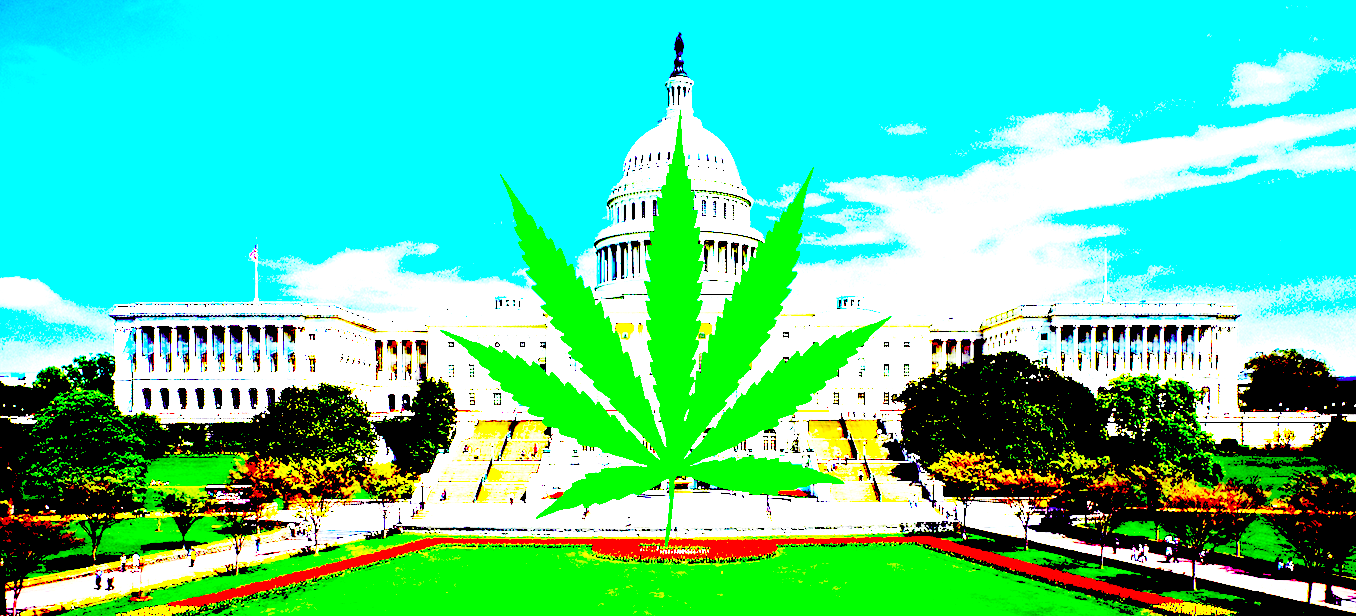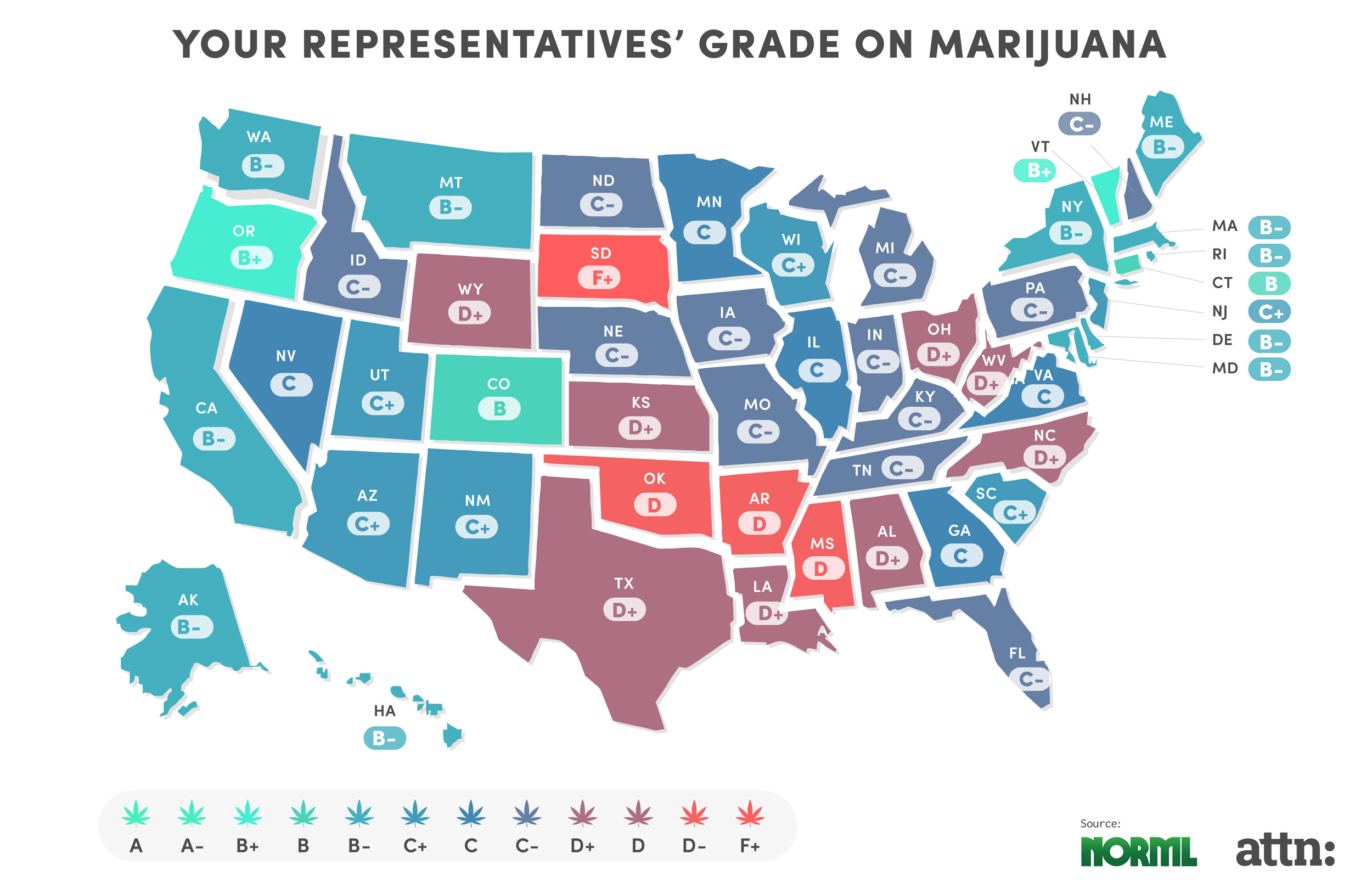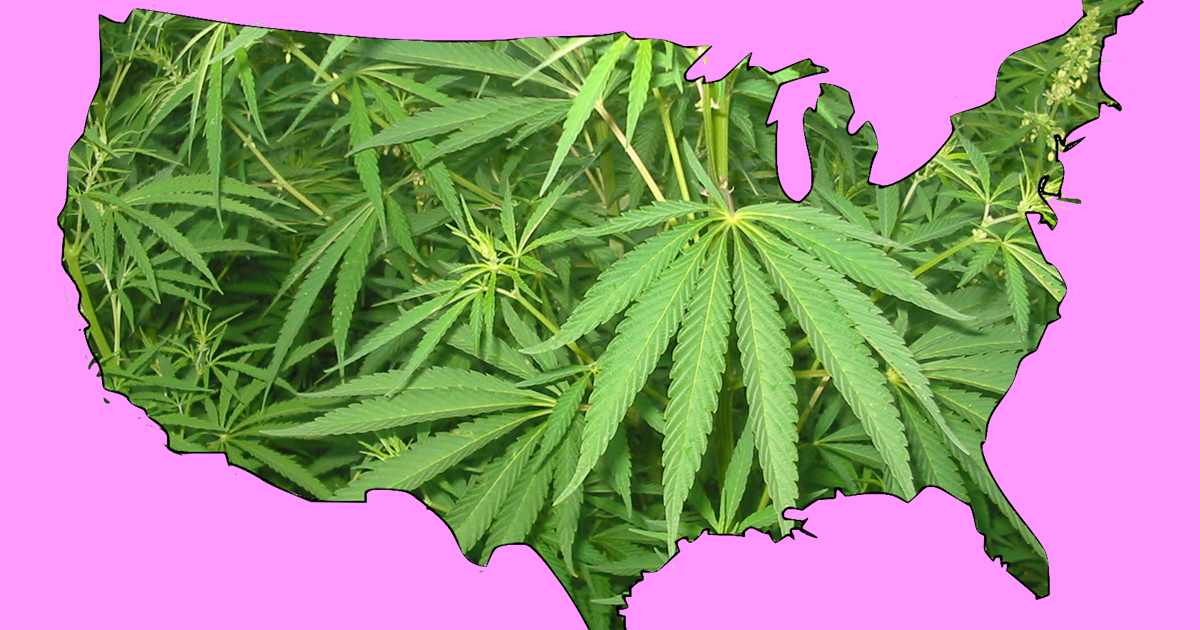Here's Where Your Representatives Stand on Marijuana

By:
There's growing evidence that a majority of Americans are in favor of marijuana legalization, but that growing support isn't always reflected in the voting positions of elected officials.
 Wikimedia - wikimedia.org
Wikimedia - wikimedia.org
NORML, a group that advocates for legal access to marijuana, assigned a letter grade to all 535 members of the U.S. House and Senate based on their past statements and votes on the issue. They found that, in many instances, the public and the people who represent them are out of step.
ATTN: took the average score of each state's representatives to illustrate what this data looks like from a state-by-state perspective.

How the grading system works for each member of Congress.
"A" — This member has publicly declared his/her support for the legalization and regulation of marijuana for adults.
"B" — This member has publicly declared his/her support for the ability of a state to move forward with cannabis law reform policies free from federal interference.
"C" — This member supports policies specific to the legalization of medical cannabis and/or the decriminalization of cannabis.
"D" — This member has expressed no support for any significant marijuana law reform.
"F" — This member expresses significant and vocal opposition to marijuana law reform.
Federal representatives are out of step with the public on the issue of marijuana legalization.
Almost 60 percent of House Representatives and Senators received a passing grade of "C" or better, but only 19 members (less than four percent) received an "A." Of the 312 members of Congress who passed, 208 were Democrats and 102 were Republicans, revealing a clear party divide on the issue of legalization.
.png?auto=format&crop=faces&fit=crop&q=60&w=736&ixlib=js-1.1.0)
"Representatives and Senators in states that have pioneered these reforms such as Colorado, Washington, Oregon, and Alaska, are largely the leaders in Congress trying to reform our federal laws," Danielle Keane, the political director of NORML, told ATTN:. "Surprisingly, California, which is very liberal in terms of marijuana law reform — they set the example being the first state to legalize medical marijuana back in 1996 — they actually do not have a very friendly delegation at the federal level for marijuana law reform."
The state of the marijuana legalization movement.
 /Kyle Jaeger, Wikimedia Commons - wikimedia.org
/Kyle Jaeger, Wikimedia Commons - wikimedia.org
At the time of publication, 24 states have legalized marijuana, either for medical or recreational purposes. An additional 14 states could vote on legalization initiatives in November. Voters have effectively challenged the federal government's prohibitionist policy and advanced a reform agenda that is increasingly popular; yet even in states where cannabis is legal, federal representatives have continued to resist this shift in public opinion.
"Unfortunately, historically, members of Congress have always been the last ones to come to the table with pioneering reforms such as these," Keane said. "We've seen in related topics such as alcohol prohibition and gay marriage, they're almost always the last ones to respond to voter sentiment."
To see how your federal representatives rank on marijuana legalization, check out NORML's Congressional scorecard here.
